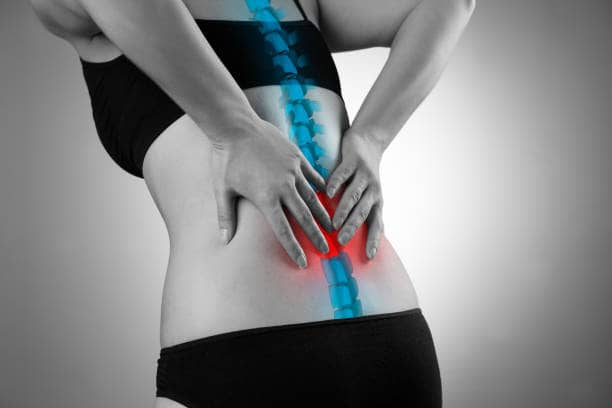Sciatica pain is a condition that is characterized by irritation of the sciatic nerve. Research says that around 4 out of 10 worldwide develop sciatica at some point in their life.
The sciatic nerve is located on either side of the lower spine. It moves through the pelvis and then buttocks. From here, it passes along the back of the upper legs before branching out at the knee from where it divides and travels to the feet.
Anything that places strain or pressure on or irritates the sciatic nerve may result in pain. This pain shoots down the backside of one thigh or buttock.
The pain sensation may vary widely. Patients usually describe sciatica as a mild ache. They also feel a sharp, burning sensation or sometimes extreme discomfort. The condition also leads to feelings of weakness, numbness, and tingling.
The pain may worsen by prolonged standing, sitting when the patient coughs, twists, sneezes, strains, lifts, etc.

Table of Contents
Treatment Options
The treatment for sciatic pain may range from hot and cold packs. Patients are also advised to take medications, do exercises, or follow alternative and complementary remedies. Here are some of the most commonly recommended treatment options for relief from sciatica back pain:
Medications
Sciatica pain can be relieved by varied types of medications. These include:
- Antidepressants for Relieving Chronic Low Back Pain
- Oral Medications
- Over-the-Counter Pain Relievers (NSAIDs, acetaminophen, aspirin, naproxen)
- Prescription Muscle Relaxants to Relieve Muscle Spasms
- Prescription Pain Medications to Handle Severe Pain
Steroid medication may also be injected in some cases into space around the spinal nerve. The injection has a decent effect on irritation resulting from pressure caused by the ruptured/herniated disc.
Physical Therapy
It is not easy being active with sciatica pain. However, bed rest is still not recommended for treatment. Some activities and positions have been proved more comfortable than others. In case the symptoms are severe not yet continuing to affect health beyond a couple of weeks, the doctor may recommend physical therapy.
Proper exercises may help alleviate sciatic pain. This helps provides conditioning for preventing pain from recurring. The activities are recommended based on the cause of sciatica. Consulting a specialist having experience working with individuals with sciatica is essential.
Alternative Remedies
Some patients may get relief from alternative and complementary therapies. However, these therapies have not been proved effective shown by scientific studies for sciatic nerve pain relief.
Biofeedback
This technique controls essential bodily functions such as muscle tension, heart rate, and blood pressure. Biofeedback works with the use of a machine supplying info related to processes being addressed. With this info being displayed, the patient may find the means to achieve careful control of these procedures. Treatment of stress and various stress-related ailments is the most common use of biofeedback.
Acupuncture
The treatment makes use of fine needles inserted at detailed sites on the skin. These sites are referred to as acupuncture points, mainly located along channels or meridians. It is believed that the channels conduct qi (vital force or energy) of the body. The use of acupuncture is related to a theory that pain results from blockage or imbalance of qi flow in the body. Acupuncture removes these blockages for the restoration of balance.
Another theory is that stimulating these points creates an effect through stimulation of the central nervous system. It triggers the release of chemicals that may either adjust the experience of pain or encourage other changes for promoting a sense of overall well-being.
Surgery
Surgery is a rare treatment option for sciatica. When pain persists for over six weeks despite all kinds of treatments, the doctor may refer you to a specialist. Surgery may be recommended as an option under this situation. This treatment aims at curing sciatica. For instance, when a herniated disc adds pressure on nerves, surgery may rectify this issue may relieve pain caused by sciatica. Severe sciatica symptoms that become worse with time should be immediately referred to a specialist.
Also Read: Aerobics Exercise for Health & Wellness in Women




